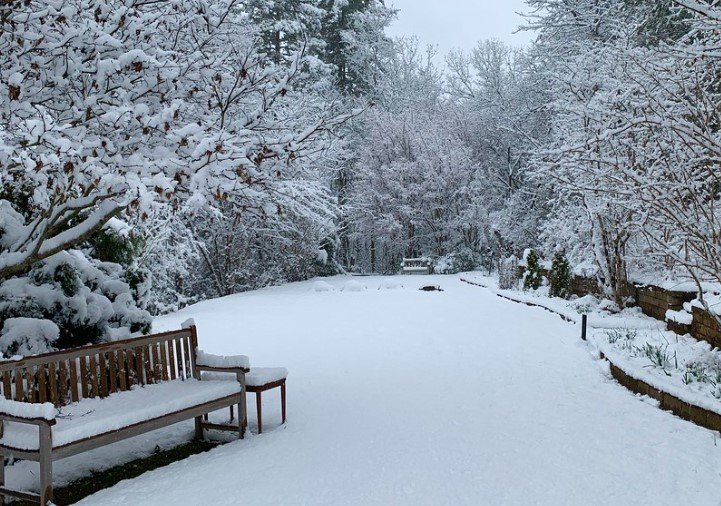After a bone-chilling Friday with temperatures dipping into the low 20s, many Georgians are asking the same question: Is winter finally loosening its grip, or is there another cold surprise in store?
Warming Trends Ahead
The latest long-range forecast from Accuweather offers some relief for those eager to pack away their winter coats. Temperatures across Georgia are expected to climb steadily, with highs ranging between the mid-50s and 70s throughout March. Overnight lows will generally stay between the low 30s and upper 40s.
The National Weather Service (NWS) backs up this outlook, with its monthly temperature projections suggesting that Georgia will likely experience above-normal temperatures for the rest of February and into March. In other words, winter’s icy grip is loosening—but it’s not entirely gone yet.
Could Georgia Get More Snow?
For snow lovers, the chances of another significant snowfall are slim, though not impossible. Georgia’s recent cold snap reminded residents that winter can still surprise, but with warming trends in the forecast, major snowfall isn’t expected in the near future.

Still, meteorologists warn that late-winter cold fronts can occasionally bring a quick shot of ice or flurries, particularly in northern parts of the state. So while you may not need your snow shovel, don’t be too quick to assume winter is completely over.
Spring Officially Begins Soon
For those counting down the days, spring is officially set to arrive on Thursday, March 20, with the spring equinox. This annual event marks the point when day and night are nearly equal in length due to the sun being directly above the equator.
While meteorological spring (based on seasonal temperature patterns) starts on March 1, the equinox serves as the astronomical beginning of spring—and, for many, a psychological milestone signaling warmer days ahead.
Time to Adjust the Clocks Again
Before spring officially kicks in, there’s one more calendar note to keep in mind: Daylight Saving Time begins on Sunday, March 9. At 2 a.m., clocks will jump forward by one hour, meaning longer daylight hours in the evenings but a temporary loss of sleep that Sunday morning.
Later in the year, Daylight Saving Time will end on Sunday, November 2, when clocks “fall back” an hour.
What to Expect Next
In the coming weeks, Georgians should prepare for gradually rising temperatures, with fewer chances of deep freezes. While another cold spell isn’t entirely off the table, long-range forecasts suggest that spring is well on its way.
So, while it might still be a bit chilly in the mornings, the season of blooming flowers and longer days is just around the corner.
